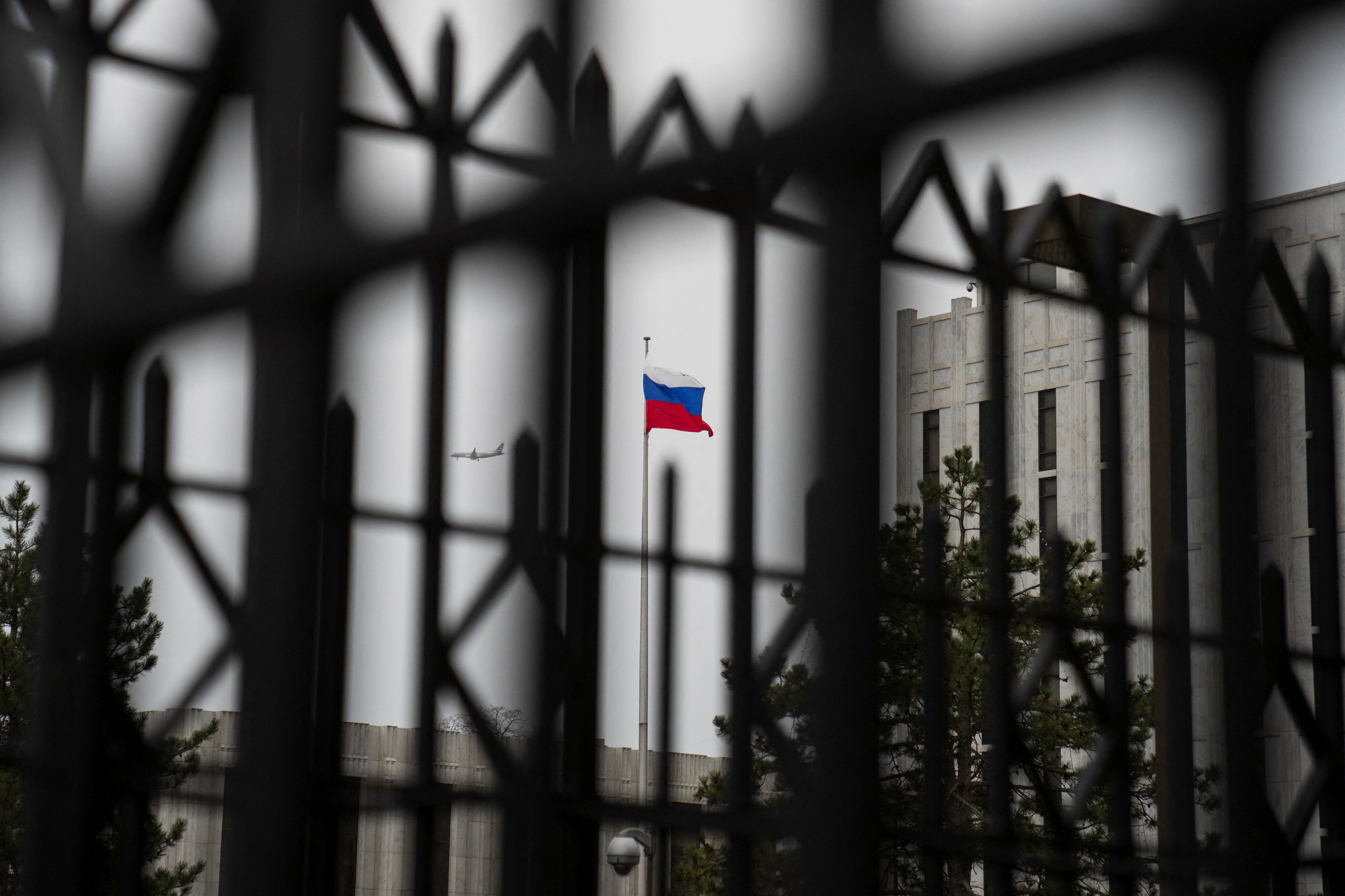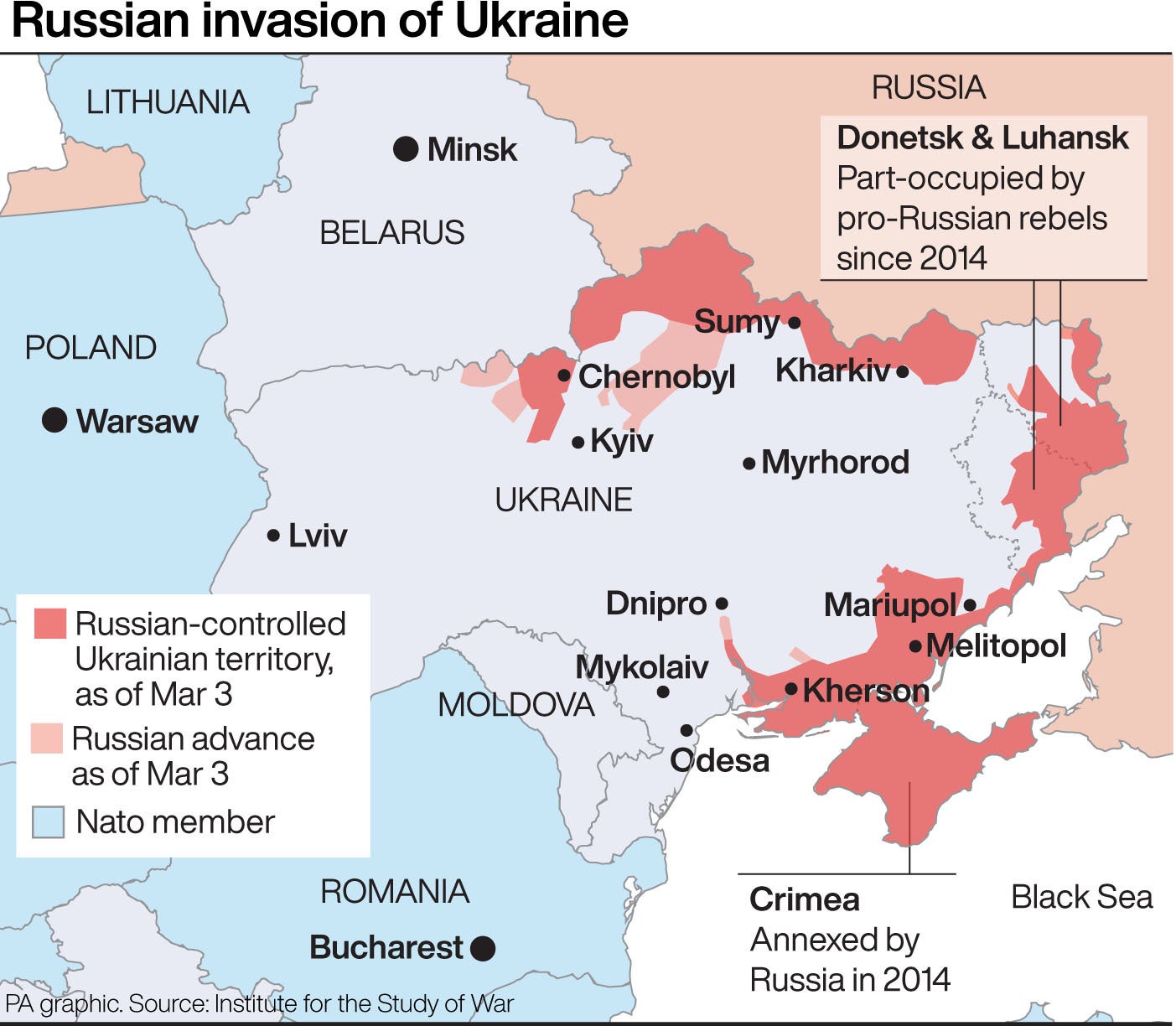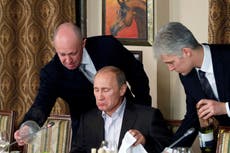‘The world’s greatest dirty money laundromat’: How America’s financial secrecy laws enabled Russian oligarchs to hide their wealth
Expert on kleptocracy says US needs to clean up anonymity laws to find oligarch wealth. Richard Hall reports


Decades of financial secrecy laws in the United States will make it nearly impossible to effectively sanction the wealth and assets of Russian oligarchs in the country, according to an anti-corruption expert.
Casey Michel, the author of American Kleptocracy, told The Independent that because of pro-anonymity policies and loopholes, “we have no idea” how deep Russian oligarch interests are in the US.
“The US has spent decades perfecting tools that provide all of the anonymity these oligarchs need to launder their money,” Mr Michel said. “These tools weren’t created by the kleptocrats — they were created by Westerners looking for tools to hide their own finances. These systems were already in place by the time these oligarchs rose to prominence — they simply stepped into the breach.”
Since Russia’s invasion of neighbouring Ukraine, the US and Europe have imposed severe sanctions against Vladimir Putin’s government and its supporters, including the billionaire oligarch class, which has for years supported and been enriched by Mr Putin.
On Thursday, the Biden administration introduced new “full blocking sanctions” against eight Russian elites with links to the government and visa restrictions on 19 Russian oligarchs and their family members.
One of those targeted by the sanctions was Alisher Usmanov, founder of Russian mining company Metalloinvest, whom the White House described as “one of Russia’s wealthiest individuals and a close ally of Putin.” The sanctions block his property from use in the United States and by US persons, including his luxury yacht, which was raided by Germany officials earlier this week, and his private jet.
The sanctions followed a Justice Department announcement on Wednesday launching a task force called “KleptoCapture” to find those assets. The State Department also named 22 Russian defence-related entities that would be hit with sanctions. European countries, including the UK, have announced similar measures targeting Russian oligarch wealth and Putin’s allies.
President Joe Biden said the goal of the sanctions was “to maximise the impact on Putin and Russia and minimise the harm on us and our allies and friends around the world.” He added: “Our interest is in maintaining the strongest unified economic impact campaign on Putin in all history and I think we’re well on the way to doing that.”
Mr Biden said during his State of the Union address earlier this week that the US and its allies would go after the “ill-begotten gains” of Russian oligarchs in the West. “We are joining with our European allies to find and seize their yachts, their luxury apartments, their private jets,” he said.
But according to Mr Michel, without a change in law at a state and federal level, it will be nearly impossible to discover the true scale of oligarch wealth in the US under the current legal structure.
“At the federal level, the US has issued anti-money laundering exemptions for real estate, private equity, luxury goods, and more — and never even bothered to implement basic anti-money laundering checks for lawyers, who are the key enablers for these oligarchs,” he said.

“Meanwhile, the states have provided the key building blocks for these offshoring networks. States like Delaware provide anonymous shell companies to whoever wants it, while South Dakota provides anonymous perpetual trusts to whoever comes calling. It’s all the perfect recipe for turning the US into the world’s greatest dirty money laundromat,” he added.
Mr Michel, an Adjunct Fellow at the Hudson Institute’s Kleptocracy Initiative, said the US would need to implement policies that create “transparency in real estate, private equity, art and auction markets, and more — in addition to basic anti-money laundering checks on lawyers, accountants, trust providers, and other so-called ‘enablers.’”
“The US has made significant strides,” he added. “The White House has taken the lead, issuing an unprecedented anti-corruption strategy document last year. And Congress created the Counter-Kleptocracy Caucus, a bipartisan group launching bill after bill to patch up remaining loopholes. But there’s still much more to be done.”
Meanwhile UK prime minister Boris Johnson said his government was “bolstering” its own sanctions against the Kremlin with "new powers in our arsenal to go further and faster.”
"We will ramp up the pressure on those criminal elites trying to launder money on UK soil and close the net on corruption," he said, adding: "They will have nowhere to hide."
The changes include shortening the length of time foreign owners of UK property will be given to declare their true identity as part of a new register of overseas entities, from 18 months to six months.
On the ground in Ukraine, Russian troops continued to bombard the capital Kyiv and laid siege to several other cities across the country in recent days.
Faced with stiff resistance, Moscow has increasingly used indiscriminate firepower which has killed civilians and destroyed apartment buildings and other civilian infrastructure.
In the southern city of Mariupol, residents reported being close to running out of water and heating. The city’s mayor, Vadym Boychenko, said in a televised appeal for help, said: "We are simply being destroyed.”
Video from the port city showed the assault lighting up the darkening sky above deserted streets and medical teams treating civilians, including a 16-year-old boy who could not be saved.
The UN human rights office said 331 civilians had been confirmed killed in the invasion but that the true number is probably much higher. Ukraine’s government said earlier this week that more than 2,000 civilians had been killed by Russia’s invasion.
— With agencies
Update 20 October 2025: This article was amended to remove an incorrect reference to the yacht, Dilbar, being seized. It was not seized, but raided. A spokesperson for Mr Usmanov contacted us to say that Mr Usmanov does not own the yacht Dilbar or the jet, and that they are owned and controlled by independent trustees of an irrevocable discretionary trust, of which Mr Usmanov has not been a beneficiary for a long time.



Bookmark popover
Removed from bookmarks